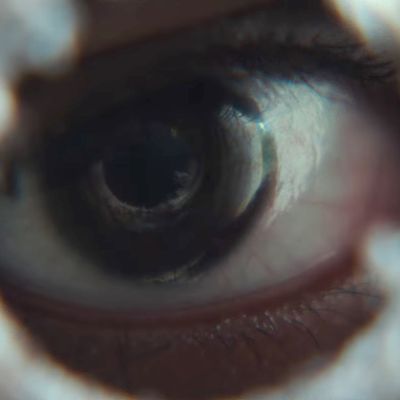
If you went to see the new horror movie It Comes at Night this past weekend, chances are you saw a movie that was entirely different from the one you were expecting. Based on the movieÔÇÖs trailers, you might have thought you were getting a highbrow take on a cabin-in-the-woods movie, with an unknown terror waiting to jump out at any moment. What you got instead was a dark, deliberate rumination on what it means to be human in a violent, unstructured world. ThatÔÇÖs a movie that one subset of horror fans will love, but itÔÇÖs not the movie A24 was selling.
This isnÔÇÖt an exceptional situation. Any time an incredible trailer comes out, fans whip themselves into a state of high anticipation, even while fretting over the possibility that all the cool shots have gone into the previews. ItÔÇÖs long been a play in the bad-movie handbook to dazzle ticket buyers with two minutes of tantalizing material, only to leave them dissatisfied when the movie turns out to be a mess. (Suicide Squad, please stand up.) But what weÔÇÖre seeing a lot more recently is studios selling good movies with deceptive trailers. It Comes at Night is the most recent example, but itÔÇÖs hardly alone: One hallmark of the new wave of prestige horror is that the movies are often nothing like the trailers.
In its mood and setting, It Comes at Night is reminiscent of another A24 horror movie The Witch, which was heavily lauded at Sundance and enjoyed healthy studio support for its release last spring. Critics loved it, and it made a lot of money for a micro-budget film ÔÇö but a lot of viewers walked out of it unsatisfied. While it pulled in a 91 percent positive rating on Rotten Tomatoes, the audience score was just 56 percent. (The same has happened to It Comes at Night: Audiences, feeling the bait and switch, have given the movie a D CinemaScore rating.)
When people see the word Witch and watch a trailer with lots of exciting 17th-century action, theyÔÇÖre not buying a ticket for a quiet, suspenseful period drama. When expectation doesnÔÇÖt match reality, fans are bound to be disappointed, no matter how good the movie is. But even if The Witch didnÔÇÖt live up to the excitement of its trailer, the movie at least had a witch; thereÔÇÖs no ÔÇ£itÔÇØ in It Comes at Night.
Other fine films have been hurt by marketing misrepresentation already this year. For horror lovers, Raw was perhaps the yearÔÇÖs most highly anticipated foreign film, but the trailers established it as ÔÇ£the cannibal sex movie,ÔÇØ and too much attention was paid to a few reports of audience members passing out during festival screenings. That plays well to a certain crowd, but all the talk of excessive gore may have alienated squeamish viewers, who missed out on a fascinating coming-of-age tale. ItÔÇÖs understandably hard to sell a low-budget French horror film with no stars, and you canÔÇÖt fault RawÔÇÖs distributor, Focus Features, for going with the sexy cannibal angle. Still, the result was one of the best horror films of the year coming and going with little splash.
Horror is one of the surest bets for getting people into theaters ÔÇö but only if the marketing machine is working correctly. It Follows, from 2014, gets a lot of credit for kicking off the current prestige-horror boom, but as a meta-commentary on horror tropes, it had a classic hook; last summerÔÇÖs Lights Out and DonÔÇÖt Breathe were jump-scare movies that were easy to sell; this winterÔÇÖs Split and Get Out had savvy trailers that properly showcased their offbeat natures. But many of todayÔÇÖs best indie horror films donÔÇÖt fit neatly into the ÔÇ£rising action, jump scare, rinse, repeatÔÇØ model. WhatÔÇÖs a studio to do? Cutting together duplicitous trailers to bait a broader audience into seeing these very good movies seems like the best of a lot of bad options.
Increasingly, itÔÇÖs not just prestige-horror films that are being marketed like traditional horror films; movies that arenÔÇÖt even thrillers are, too. Based on the trailers for Sofia CoppolaÔÇÖs The Beguiled, audiences may think theyÔÇÖre in store for a high-camp Civil War tale about a gaggle of women who violently clap back against the single man in their midst. But according to reviews from Cannes, the film is more Virgin Suicides than Audition; viewers hoping for a misandry-fueled bloodbath will be left unfulfilled. Similarly, the new adaptation of Daphne du MaurierÔÇÖs My Cousin Rachel teases psychosexual intrigue in the genteel English countryside, when the movieÔÇÖs actually a satisfying character drama. And based on the trailers for The Bad Batch, youÔÇÖd be justified expecting a dystopian revenge thriller with cannibals and amazing music cues. If you buy a ticket, youÔÇÖll get the music, but youÔÇÖll also get a long, slow acid trip through a desert. The plan has been working ÔÇö audiences are excited for these movies. But will they still be excited when the movieÔÇÖs over?
HorrorÔÇÖs boom times will lift all boats. The success of Split and Get Out frees up funding for more idiosyncratic projects like The Witch. But the spirit of those smaller movies are often at odds with cut-and-paste marketing campaigns. That fans can look forward to more experimental, adventurous horror movies is a good thing, but until studios get better at selling them, it also means they can expect more of these deceptive trailers. Until that day comes, be prepared to go into a lot more movies with an open mind. You truly donÔÇÖt know what youÔÇÖll find after the opening credits roll.


